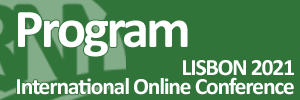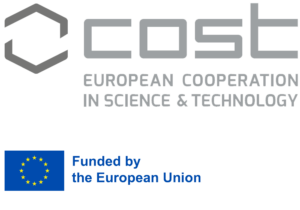
International Online Conference | 27th January 2021
Education: What’s next? Formal education & training and the transition from school to work in rural areas
Hosted by Lisbon, ISCTE-Instituto Universitário de Lisboa (Portugal)
______________________________________________________
The COST-Lisbon International Conference Education: What’s next? Formal education & training and the transition from school to work in rural areas is the result of an in-progress multidisciplinary scientific network on rural NEETs among researchers from 27 European countries.
This network is working, since October 2019, as a four-year COST Action (CA18213 – Rural NEET Youths Network). Funded by the EU Horizon 2020 Framework Program, this Action encompasses the creation of a European-led multidisciplinary network from countries showing higher NEET youth rates in rural areas and aims at developing a model of comprehension for rural NEETs’ social exclusion risk and protective factors. The theme of this conference is aligned with the first annual thematic priority approved by the Action MC for the second grant period, which is Rural NEETs and Formal Education.
In a short definition, NEETs are young people aged between 15 and 34 years old who are excluded from employment, education, or training. This category is heterogeneous including young people that fit into the International Labour Organization definition of unemployed youth, but also others not seeking actively work.
Across Europe, rural NEETs represent the biggest share of NEETs; however, they remain mostly as an implicit subgroup of NEETs in the literature. Recent figures show that across the overall European Union (EU) member-states, the proportion of NEETs is higher in rural regions (18.9%), (meaning those areas where more than 50% of the population lives in the countryside) than in urban areas (15.6%). This trend is evident in 17 out of the 28 EU countries. This difference is greater in Southern and Eastern European countries.
Education plays an important role in this context. Related to formal education & training, three main issues strongly influence potential social exclusion processes:
- Early school leavers. Examination of data in terms of educational achievement shows that the proportion of early school leavers in rural European regions is, on average, above the 10% benchmark set by the European Commission.
- Educational offers. In most rural areas, educational offer of formal learning as well as other means of learning are considerable reduced, compared to those existing in urban areas. In addition, to tackle job shortage, young people in rural areas tend to focus on vocational education largely than urban youth, on a rather restricted local offer basis, narrowing their opportunities to find a job and to continue education/professional training.
- Transition from school to the labour market. This transition is a complex long-term process through which most vulnerable youths, including rural NEETs, are exposed to an increased risk of precariousness or marginalization.
Vulnerable rural youths may face job offers limited to low-skilled work, fewer opportunities to develop broad work experience, or reduced mobility and commutation. Rural youths in general are strongly affected by insufficient interconnection of educational offers and labour market needs. This dissonance is troublesome in rural areas, due to greater difficulty of finding employment outside agriculture.
In this context, educational and employment services fail to identify and match the needs of rural youths, such as rural NEETs, and to involve them in the available proposals or programs, some of them under initiatives like the Youth Guarantee.
During the COST-Lisbon Conference, Ingrid Schoon (University College of London, UK), Michael Corbett (Acadia University, Canada) and other invited keynote speakers, together with interested scholars and emerging researchers will contribute to the scientific debate of these issues. As the knowledge about rural youth in general – and their education & training, in particular – does not seem to be consolidated among European researchers, the conference has the purpose to clarify emerging trends and identifying new issues for the research agenda, as well as for public policy recommendations.
Two plenary sessions, one round table discussion, several parallel paper sessions and one poster session will be organized in Lisbon at ISCTE-IUL.
PROGRAM
![]() Download the Lisbon Conference PROGRAM
Download the Lisbon Conference PROGRAM
27th of January 2021
All schedule in Lisbon time (CET minus 1h)
9.30-10.15 | Opening session & welcoming note from Cost Action 18213
Format: institutional session
• Francisco Simões (Rural NEET Youth Network Chair; ISCTE-IUL, Portugal)
(about 10 minutes each)
10.15-11.00 | COST Action Panel: Rural NEETs, education and training: An overview
Moderator: Maria Manuel Vieira (ICS, University of Lisbon, Portugal)
Format: three presentations – 15 minutes each (WG presentations focused on highlights from Month 12 deliverables+15 minutes of discussion by critical friend+15 minutes discussion)
- WG 1 presentation: Rural NEETs and the role of formal education Alena Minns (Independent researcher – Slovakia) & Daniela Mamucevska (Faculty of Economics, Skopje, North Macedonia)
- WG 2 presentation: Best-practices across Southern and Eastern Europe: What do we know thus far – Claudia Petrescu (The Research Institute for Quality of Life – Romania) & Emre Erdogan (Istanbul Bilgi University – Turkey)
- Critical friend notes: Sofia Marques da Silva (FPCEUP- Portugal)
11.00-11.20 | Break
11.20-12.30 | Parallel sessions 1
Moderators: members of the scientific and organizing team; COST Action members.
Up to three simultaneous sessions with three 15 minutes presentations each and 15 minutes general discussion. One more morning of parallel sessions will be added, if needed.
![]() Download Parallel Sesions Lisbon 2021 Program
Download Parallel Sesions Lisbon 2021 Program
12.30-14.00 – Lunch break
14.00-15.00 | How can rural education and training systems address rural youths challenges? Invited keynote speakers
Moderator: Ricardo Rodrigues (CIS-ISCTE – Portugal)
Format: 25 minutes traditional oral presentation by each speaker+20 minutes for general discussion
- Keynote speaker 1: Ingrid Schoon (University College of London, UK)
- Keynote speaker 2: Michael Corbett (Acadia University, Canada)
15.00-16.00 | Parallel sessions 2
Moderators: members of the scientific and organizing team; COST Action members.
![]() Download Parallel Sesions Lisbon 2021 Program
Download Parallel Sesions Lisbon 2021 Program
15.00-16.00 | Round-table: Rural education & training in Portugal: Promising policies, innovative experiences, mobilizing goals*
Moderator: Francisco Simões (Chair of RNYN; CIS-ISCTE – Portugal)
Format: Participated discussion
- ANQEP representative – Francisca Simões;
- Conselho Nacional da Educação representative – Pedro Lourtie;
- Director of Escola Profissional da Praia da Vitória – Domingos Borges
*Session to be held in Portuguese
16.00-16.15 | Break
16.15-17.00 | Rural education & training: Pathways to be taken and concluding remarks
Informal talk: Round-tables moderators; organizing team members.
- Francisco Simões (Rural NEET Youth Network Chair, ISCTE-IUL, Portugal)
- Maria Manuel Vieira (ICS, University of Lisbon, Portugal)
- Ricardo Rodrigues (ISCTE-IUL, Portugal)
_______________________________________________________________
COST-Lisbon Conference Scientific Committee
Alena Minns (Slovak Youth Institute, Bratislava, Slovakia); Ana Sofia Ribeiro (ICS, Lisbon, Portugal); Claudia Petrescu (Research Institute for Quality of Life, Bucharest, Romania); Daniela Mamucevska (Faculty of Economics, Skopje, North Macedonia); Francisco Simões (ISCTE-IUL, Portugal); Gabriela Neagu (Research Institute for Quality of Life, Bucharest, Romania); João Graça (ICS, Lisbon, Portugal); Maria Manuel Vieira (ICS, Lisbon, Portugal); Slaven Gasparovic (University of Zagreb, Croatia).
COST-Lisbon Conference Organising Committee
Francisco Simões (ISCTE-IUL – Portugal); Leonardo Sousa (ISCTE-IUL – Portugal); Maria-Fernandes Jesus (ISCTE-IUL – Portugal); Mariano Soler-Porta (Universidad de Málaga – Spain); Ricardo Rodrigues (ISCTE-IUL – Portugal); Tatiana Ferreira (ICS – Portugal).
![]() COST CA18213 | Lisbon Conference CALL [CLOSED]
COST CA18213 | Lisbon Conference CALL [CLOSED]
![]() Submit your propossal [CLOSED]
Submit your propossal [CLOSED]
![]() Submit your propossal to be an ECI Reviewer [CLOSED]
Submit your propossal to be an ECI Reviewer [CLOSED]
![]()



